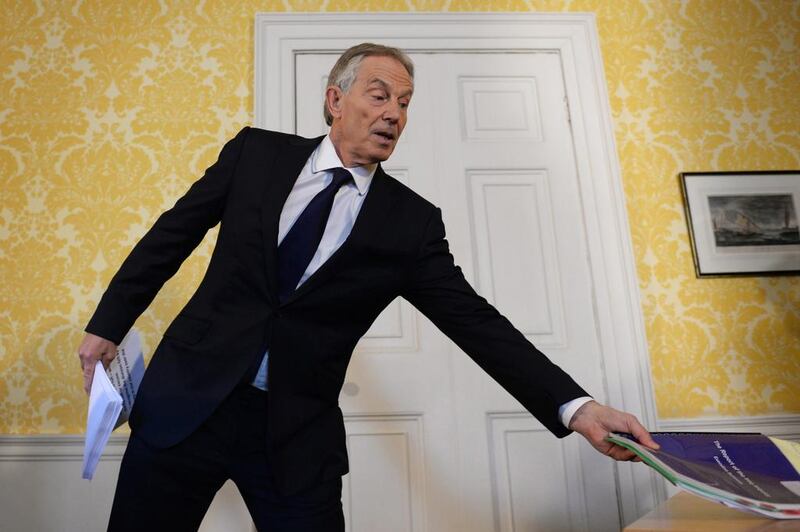Like the lawyer he was in a previous incarnation, Tony Blair has always been good at the incisive statement, carefully sculpted to exclude unsavoury facts. Immediately after the Chilcot report was published, Mr Blair was on television, justifying his war by announcing that “the world is a better place without Saddam Hussein”.
Leave aside that many millions of Iraqis may disagree – those enslaved under ISIL’s “caliphate”, those whose fathers were slaughtered by sectarian militias, those whose children were blown to pieces by US bombs, all may well wish for the brutal stability of Saddam’s reign – it remains the wrong answer to a question no one asked.
Of course the world is better without Saddam Hussein. But it would be better without many, many leaders. Does anyone doubt the world would be better without Kim Jong-un? And yet can anyone hear the drum beat of war to attack North Korea and free 25 million people?
The very idea of humanitarian intervention, where countries step in to save a population from the crimes of their own government, has been profoundly affected by the Iraq war. It will be further diminished by the Chilcot report.
This is both a shame and a tragedy. A shame because the idea has much to recommend it in the modern world. A tragedy because, as a direct consequence of the political quiescence that Chilcot will engender, tens of thousands, maybe more, will die.
Mr Blair, the man who buried humanitarian intervention, was once most vocal in praising it.
In 1999, as the Kosovo war – an early example of humanitarian intervention – was raging, he gave what is now called his “Chicago speech”, in which he laid out how humanitarian intervention could work as a doctrine.
The problem with intervening in the affairs of other countries when there is no clear threat to your own is the same one that arises with seeking to create any new moral standard that guides future actions: politics.
Humanitarian intervention is a political construction and because of that it can be used with equal vigour by one side or another, to further political ends.
If the US can claim humanitarian intervention to attack Iraq, what is to stop Russia claiming humanitarian intervention to attack Ukraine? It is a political idea and political ideas can easily be manipulated – as the concept of “terrorism” has been.
When it came to the Iraq war, humanitarian intervention – which Mr Blair appeared to genuinely believe in during the 1990s – became just one rhetorical device out of many to be pressed into service to argue for an invasion of Iraq.
The case for invading Iraq began with “standing with America” – it then became “cruel dictator”, “democracy in the Middle East”, “weapons of mass destruction” and finally “imminent threat”.
Look back over Mr Blair’s interviews at the time and it is clear that he, in real time, was cycling through these arguments, probing which worked best with the public. The “imminent threat” was the strongest, and brought the added benefit of being the only legal justification to start a war.
Humanitarian intervention is meant to occur only when there is a pressing need to save populations from imminent danger – that was the rationale and the reality of Kosovo in 1999. It was obvious in 2003, and the Chilcot report confirmed last week, that those conditions did not obtain in Iraq.
There is a direct line from the intervention in Iraq to the non-intervention in Syria a decade on.
In the former, intervention caused thousands of deaths. The latter did too. This is a consequence of the Iraq war. By creating a chilling effect on any military action, it will yet doom many thousands, in conflicts as yet unbirthed, to be harmed, with those countries with the military might to help cowed by the shadow of Iraq.
For now, humanitarian intervention by western countries is politically toxic.
Publics who already mistrust politicians, for many reasons, are certainly not willing to allow them to drag their countries to war again. No military involvement by the West this century has gone well – neither Iraq, nor Afghanistan, nor Libya.
That should not be celebrated. Humanitarian intervention is difficult, messy and politically complex. It will be the work of years to discover if it is possible to formulate a workable set of rules.
But just as the rules of war are necessary to give structure to an ineradicable evil, so rules of humanitarian intervention will be needed to give structure to a crucial option.
The use of force is not always bad. Sometimes it is necessary to stop something far worse. Today in Syria the world is witnessing the worst war of this young century. But because the war is mostly confined within Syria’s borders, traditional doctrines of war don’t apply.
With no neighbours directly threatened by war, there is no basis to intervene. But morality must tell us that standing by and watching as the lives of millions of people burn is wrong.
Iraq was a war of choice. Syria is a war of morality. It is the tragedy of Syrians that the international community cannot see that distinction yet – and the millions of words of the Chilcot report will only obscure it further.
falyafai@thenational.ae
On Twitter: @FaisalAlYafai





